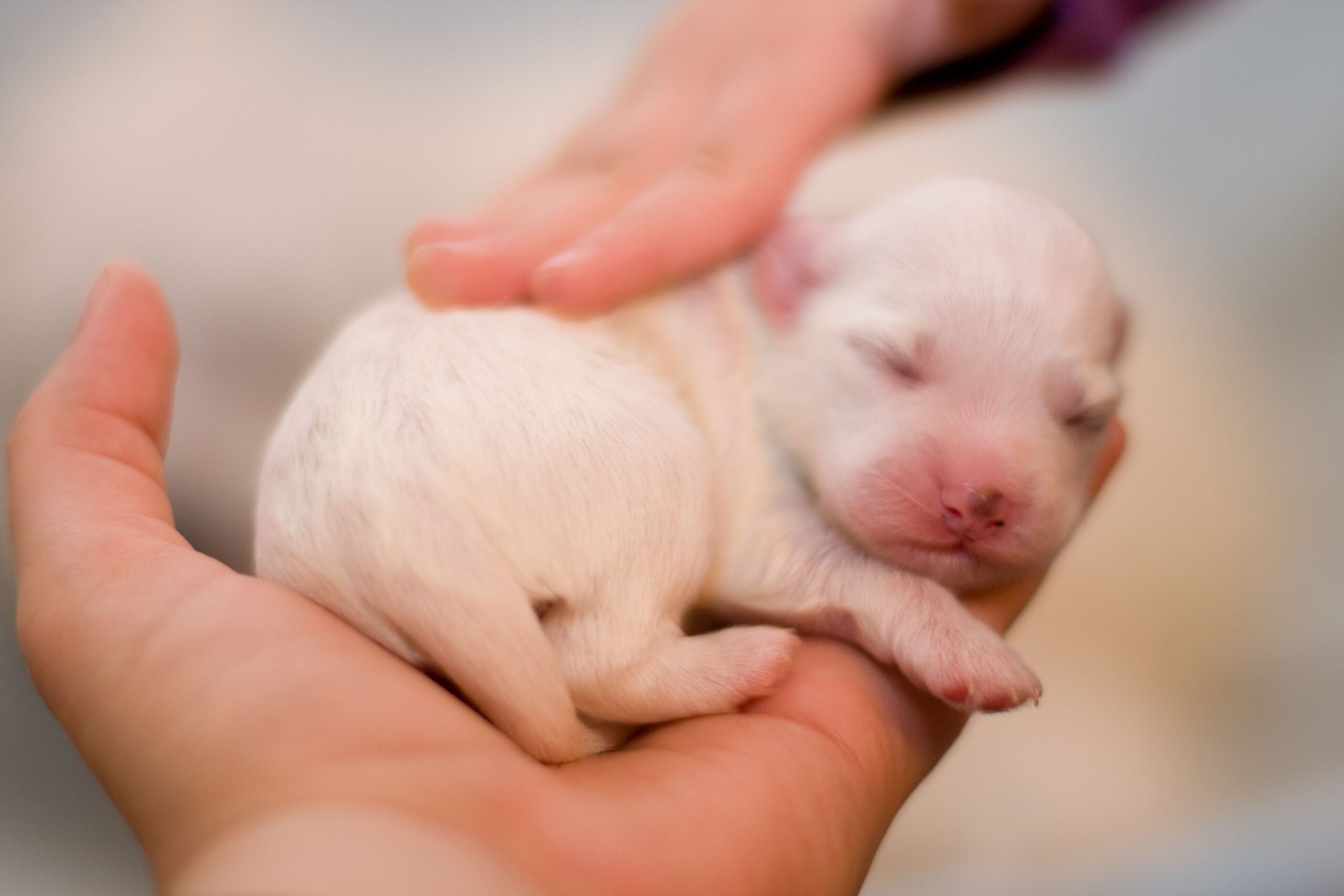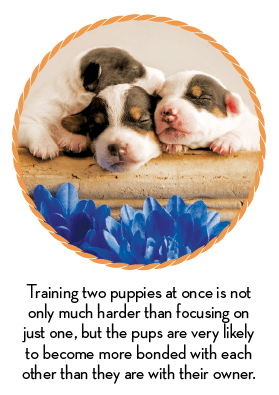Before bringing home your first puppy, there are a few important things you need to know. From basic care and training to understanding their needs and responsibilities, this guide will help you prepare for the exciting journey of owning a furry friend.
Key Takeaways:
- Owning a puppy requires a significant time commitment, as they need constant attention and care.
- Puppies require proper socialization from an early age to prevent behavioral issues in the future.
- It is important to establish a consistent routine for feeding, exercise, and training to help your puppy adjust and thrive.
- Financial considerations should be taken into account, as puppies require regular vet visits, vaccinations, and supplies such as food, toys, and grooming products.
- Patience is key when training a puppy, as they are still learning and may make mistakes along the way. Consistency and positive reinforcement are essential for successful training.
Important Considerations Before Getting Your First Puppy
Before bringing a puppy into your life, there are some important things to consider. Owning a puppy is a big responsibility and requires a commitment of time, energy, and resources. Firstly, you need to think about whether you have enough space in your home for a puppy to roam and play. Puppies are active and curious creatures that need room to explore.
Another consideration is the financial aspect of owning a puppy. Puppies require regular veterinary check-ups, vaccinations, and food. Additionally, there may be unexpected expenses such as emergency medical care or training classes. It's important to budget for these costs and ensure you can provide for your puppy's needs.
Finally, it's crucial to think about the time commitment involved in raising a puppy. Puppies need plenty of attention, exercise, and socialization. They require consistent training and supervision to learn good behavior. If you have a busy schedule or travel frequently, it may not be the right time to bring a puppy into your life.
Space Requirements
Puppies are full of energy and need space to run around and play. They will also need their own designated area for sleeping and eating. Make sure you have enough room in your home for a crate or bed where they can feel safe and comfortable.
Financial Considerations
Owning a puppy comes with financial responsibilities such as food, vaccinations, grooming supplies, toys, and veterinary care. It's important to budget for these expenses beforehand so that you can provide the best care for your new furry friend.
Time Commitment
Raising a puppy requires time and dedication. You will need to spend time training them, taking them on walks or playdates with other dogs, and providing them with mental stimulation. Puppies thrive on routine and consistency, so be prepared to spend quality time with your new companion.
The Responsibilities of Owning a Puppy: Why They Matter
Owning a puppy is a wonderful experience, but it also comes with great responsibility. As a puppy owner, you are responsible for meeting all of their needs and ensuring their well-being. This includes providing them with food, water, shelter, exercise, and veterinary care.
One of the most important responsibilities of owning a puppy is training them. Training helps puppies learn proper behavior and ensures they grow up to be well-behaved adult dogs. It's important to start training early and be consistent with your expectations.
Another responsibility is keeping your puppy safe. This means supervising them at all times, especially during their early months when they are still learning about the world. Puppy-proofing your home by removing any potential hazards is also crucial.
Training
Training your puppy is essential for their development and well-being. Basic commands such as sit, stay, and come should be taught from an early age. Positive reinforcement techniques like treats and praise can be used to reward good behavior.
Safety Measures
Puppies are curious creatures that can get into trouble if left unsupervised. It's important to create a safe environment for your puppy by removing any toxic plants or household chemicals that they may accidentally ingest. Additionally, keep small objects out of reach to prevent choking hazards.
Puppy-Proofing Your Home Checklist:
- Secure electrical cords
- Store cleaning supplies out of reach
- Keep medications locked away
- Remove small objects that could be swallowed
- Block access to dangerous areas like the kitchen or stairs
Preparing Your Home for Your New Puppy's Arrival: What You Need to Know
Bringing a new puppy into your home is an exciting time, but it's important to prepare your home beforehand to ensure their safety and comfort. Start by designating a specific area of your home for your puppy. This can be a crate, a playpen, or a small room where they can feel secure.
Puppies are curious and love to explore, so make sure you puppy-proof your home. Remove any potential hazards such as toxic plants, chemicals, or small objects that they could swallow. Secure electrical cords and block off access to areas that may be dangerous for them.
Stock up on essential supplies before your puppy arrives. These include food and water bowls, a collar and leash, toys, bedding, and grooming supplies. Having these items ready will help make the transition smoother for both you and your new furry friend.
Puppy-Proofing Tips
Puppy-proofing your home is crucial to keep your new furry friend safe. Here are some tips:
Remove Potential Hazards:
- Store cleaning supplies out of reach
- Secure loose wires and cords
- Keep toxic plants out of reach
- Put away small objects that could be swallowed
- Block access to areas with breakable items or valuables
Essential Supplies Checklist:
- Food and water bowls
- A comfortable bed or crate with bedding
- A collar and leash
- Toys for chewing and playing
- Grooming supplies such as a brush and shampoo
Meeting the Basic Needs of Your Puppy: A Guide for New Owners
Providing Proper Nutrition
One of the most important aspects of meeting your puppy's basic needs is providing them with proper nutrition. It is essential to choose a high-quality puppy food that is appropriate for their age, breed, and size. Consult with your veterinarian to determine the best diet for your puppy. Make sure to feed them at regular intervals and provide fresh water at all times.
Ensuring Sufficient Exercise
Puppies have lots of energy and need regular exercise to stay healthy and happy. Take your puppy for daily walks or play interactive games such as fetch or tug-of-war. Engaging in physical activities not only helps them burn off excess energy but also promotes muscle development and mental stimulation.
Creating a Comfortable Sleeping Area
Your puppy needs a designated sleeping area where they can feel safe and secure. Provide a cozy bed or crate with soft bedding that is easily washable. Place the sleeping area in a quiet corner of your home away from any drafts or excessive noise.
Keeping Your Puppy Healthy and Providing Veterinary Care: What You Should Do
Scheduling Regular Veterinary Check-ups
To keep your puppy healthy, it is crucial to schedule regular veterinary check-ups. Your veterinarian will perform necessary vaccinations, conduct routine examinations, and address any health concerns you may have. These check-ups help prevent illnesses, detect potential problems early on, and ensure that your puppy receives appropriate medical care.
Maintaining Vaccination Schedule
Vaccinations are vital for protecting your puppy against various diseases. Follow the recommended vaccination schedule provided by your veterinarian to ensure that your puppy receives all necessary vaccines at the right time. This helps boost their immune system and prevents the spread of contagious diseases.
Implementing Preventive Measures
In addition to vaccinations, it is essential to implement preventive measures to keep your puppy healthy. This includes regular deworming, flea and tick prevention, and maintaining good hygiene by regularly grooming your puppy. Consult with your veterinarian for specific recommendations based on your puppy's needs.
Addressing Behavioral Challenges in Puppies: Tips for New Owners
Establishing a Consistent Routine
Puppies thrive on routine, so it is crucial to establish a consistent daily schedule. Set regular times for feeding, exercise, playtime, and rest. This helps them feel secure and reduces anxiety or behavioral issues that may arise from uncertainty.
Positive Reinforcement Training
When addressing behavioral challenges in puppies, positive reinforcement training is highly effective. Reward desired behaviors with treats, praise, or playtime to encourage them to repeat those behaviors. Avoid punishment-based training methods as they can lead to fear or aggression in puppies.
Seeking Professional Help if Needed
If you are facing significant behavioral challenges with your puppy that you are unable to address on your own, do not hesitate to seek professional help from a certified dog trainer or animal behaviorist. They can provide guidance tailored specifically to your puppy's needs and help you overcome any difficulties you may be facing.
Socializing Your Puppy with Other Animals and People: How to Do It Right
Introducing Gradually and Positively
When socializing your puppy with other animals or people, it is important to introduce them gradually and positively. Start by exposing them to calm and friendly individuals in controlled environments. Allow them to approach at their own pace and reward them for calm and friendly behavior. Gradually increase the level of exposure as your puppy becomes more comfortable.
Enrolling in Puppy Socialization Classes
Puppy socialization classes are a great way to expose your puppy to different animals, people, and environments in a controlled setting. These classes provide supervised interactions and guidance from experienced trainers, helping your puppy develop positive social skills and reduce fear or aggression towards unfamiliar situations.
Providing Positive Experiences
Ensure that your puppy has positive experiences during socialization by exposing them to a variety of stimuli such as different sounds, textures, and environments. Take them on car rides, introduce them to various surfaces like grass or sand, and expose them to different types of people (children, adults) to help them become well-rounded and adaptable.
Training Your Puppy and Teaching Basic Commands: Effective Methods to Try
Using Positive Reinforcement Techniques
Positive reinforcement is an effective method for training puppies. Reward desired behaviors with treats, praise, or playtime to reinforce those behaviors. Use verbal cues such as "sit" or "stay" along with hand signals consistently to associate the command with the action. Be patient and consistent in your training efforts.
Short Training Sessions
Puppies have short attention spans, so it is important to keep training sessions brief but frequent. Aim for 5-10 minutes of focused training multiple times a day rather than long sessions that may lead to frustration for both you and your puppy. End each session on a positive note with a reward.
Enrolling in Puppy Obedience Classes
Puppy obedience classes provide structured training environments where professional trainers can guide you in teaching basic commands and addressing common behavioral issues. These classes also offer opportunities for your puppy to socialize with other dogs, further enhancing their training experience.
Creating a Safe and Loving Environment for Your New Puppy: What You Can Do
Puppy-Proofing Your Home
Prioritize the safety of your puppy by puppy-proofing your home. Remove any toxic plants, secure loose wires or cords, and keep harmful substances out of reach. Block off areas that are off-limits to your puppy and provide them with a designated space where they can play safely.
Providing Mental Stimulation
In addition to physical exercise, puppies need mental stimulation to prevent boredom and destructive behaviors. Provide puzzle toys, interactive games, and regular training sessions to keep their minds engaged. Rotate toys regularly to keep them interesting.
Establishing Boundaries with Consistent Rules
To create a loving environment for your new puppy, establish boundaries with consistent rules. Teach them what is acceptable behavior and what is not through positive reinforcement training methods. Be patient and consistent in enforcing these rules so that your puppy feels secure and understands their place in the family hierarchy.
| Key Takeaways | |
| 1. | Research different breeds to find one that suits your lifestyle. |
| 2. | Prepare your home by puppy-proofing and setting up a designated area. |
| 3. | Create a schedule for feeding, exercise, and training. |
| 4. | Invest in necessary supplies such as food, toys, and grooming tools. |
Where should a puppy sleep the first night?For the initial night and approximately three weeks, it is recommended to have the puppy sleep in a dog crate near the bed. Put blankets on the base to create a comfortable environment and cover the top with another blanket to provide a sense of security. Additionally, provide the puppy with a stuffed toy that has the scent of its littermates for comfort and companionship. What is the hardest part of having a puppy?One of the main challenges for new puppy owners is dealing with chewing, teething, and destructive behavior. It can be frustrating not knowing which clothing, furniture, plants, and other household items will withstand the first few months or year with a new puppy. This is a time when your patience will be put to the test. Should I ignore puppy crying at night?If your puppy is crying, give them some time to see if they stop. However, don't leave them alone for too long as it can cause stress. It is important to provide comfort to your puppy when they cry at night in order to reassure them. So if you believe they won't calm down or they might become more agitated, go to them. Is the first week of having a puppy the hardest?The initial week with a new puppy involves constant supervision to prevent accidents, chewing on inappropriate items, or getting into trouble. The puppy's needs must be taken into consideration for every activity, including going to the bathroom. Can I let my dog roam free in the house?It is important for your dog to be trained to use the bathroom outside and to understand what items are off-limits for chewing. Additionally, your dog should be comfortable being alone. What should I do in the first week of my puppy?Begin "Play Training" for your puppy in the first week, focusing on simple commands and playful exercises. Keep the training sessions short and frequent throughout the day, making sure they are enjoyable for your puppy. This approach is more effective for your dog's ability to concentrate.
More Reads
Dr. Clara Bennett
Hello, fellow pet enthusiasts! I'm Dr. Clara Bennett, your go-to expert on all things pets. With a background in veterinary medicine and a passion for nutrition, I've spent years diving deep into the world of cats, dogs, birds, horses, and the products that keep them thriving. From the English countryside, I've witnessed the magic of animals and am here to share my knowledge, ensuring your pets receive the best care. Together, let's master the art of pet care!
All Posts »
Next Steps In Mastering Cat CareNext Steps In Mastering Dog CareJoin Our NewsletterSubscribe to receive our latest updates in your inbox! | |















